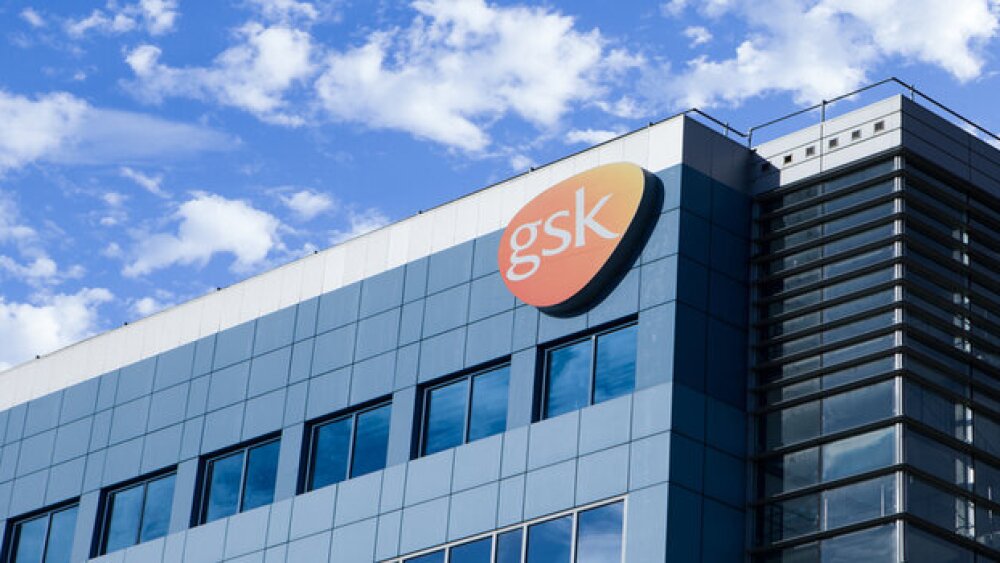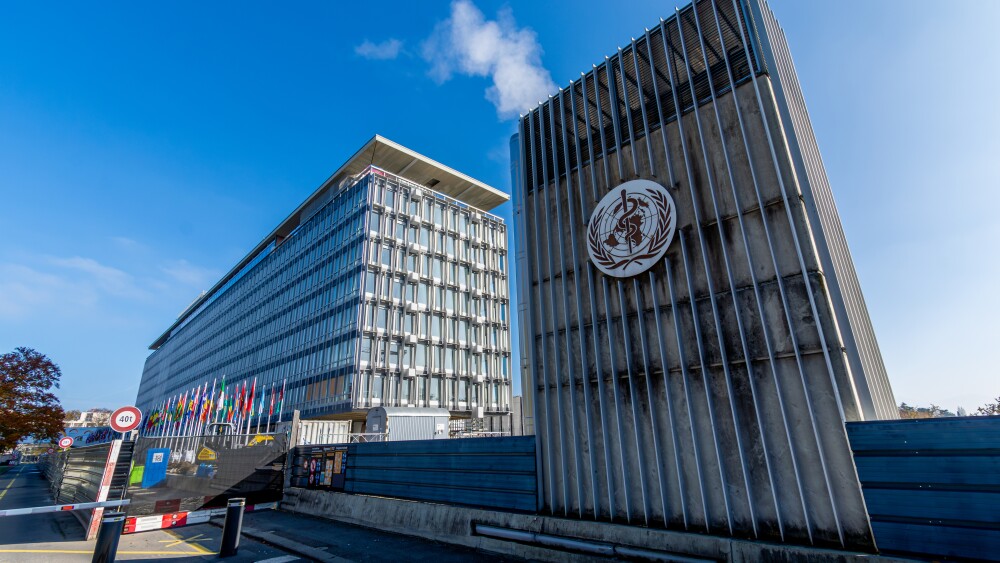The biopharma is projecting its HIV business will reach up to $8.5 billion in sales by 2026, based on the success of its long-acting antiretroviral therapy Cabenuva.
Pictured: GSK building in Poland/iStock, Wirestock
GlaxoSmithKline is boosting the medium-term forecast for its HIV business, based on the success of GSK’s long-acting antiretroviral therapy Cabenuva, according to multiple media outlets.
GSK is forecasting sales growth of between 6% and 8% for its HIV business, reaching £7 billion ($8.5 billion) by 2026, up from “mid-single-digit” percentage growth. However, ODDO BHF analysts already bumped up the valuation for GSK’s HIV business by the same amount in late 2022, while estimating that Cabenuva alone could reach £3 billion in sales by 2030.
By comparison, the company recorded £5.7 billion in HIV drug sales in 2022, a 12% increase from 2021 at constant currencies.
Deborah Waterhouse, CEO of GSK’s specialist HIV company ViiV Healthcare, said during Thursday’s capital markets day that the strong performance of Cabenuva partly drove the new projection, and that the long-acting regimen will likely make up a third of GSK’s HIV revenue by 2026. The company also said its Apretude injection to prevent infection is gaining acceptance among the at-risk population, and demand for its shingles vaccine is also continuing to grow.
Waterhouse also noted that an older-generation drug, dolutegravir, will be losing patent protections by the end of the decade, and that the strong performance of new-generation drugs like Cabenuva will help bolster GSK. The core composition patent for dolutegravir expires in 2028, while its formulation patents for Dovato and Juluca expire in 2029 and 2030, respectively.
Much of the projected growth is being driven by growing demand for long-acting HIV regimens. Traditional doses are given orally daily, which means that missing a single day can be significant for patients. Longer-acting doses give patients more freedom, Waterhouse said.
First approved by the FDA in January 2021, Cabenuva drastically simplified HIV-1 treatment regimens. Instead of taking antiviral drugs daily, patients only had to get injections once per month or 12 times a year.
Cabenuva was later approved by the FDA in February 2022 for use every two months, cutting dosing in half. However, Waterhouse acknowledged that patients having to go to a clinic to receive an injectable dose six times per year can be onerous, which is why the company is working on ultra-long-acting drugs, as well as self-administered treatments.
GSK is looking to have selected a long-acting, self-administered drug candidate by next year, with the goal of winning approval by 2030. The company is also looking to leverage cabotegravir, a Cabenuva component, into a twice-yearly formula by 2030.
For now, daily pills such as Gilead Sciences’ Biktarvy remain the mainstay of HIV treatment. Gilead is developing a long-acting injectable HIV treatment, lenacapavir, that can be given every six months, and reported positive data from the Phase II/III CAPELLA trial in July 2023.
In August 2022, Gilead scored the first regulatory approval for twice-yearly treatment when lenacapavir was awarded marketing authorization by the European Commission for adults living with multi-drug resistant HIV.
Connor Lynch is a freelance writer based in Ottawa, Canada. Reach him at lynchjourno@gmail.com.





